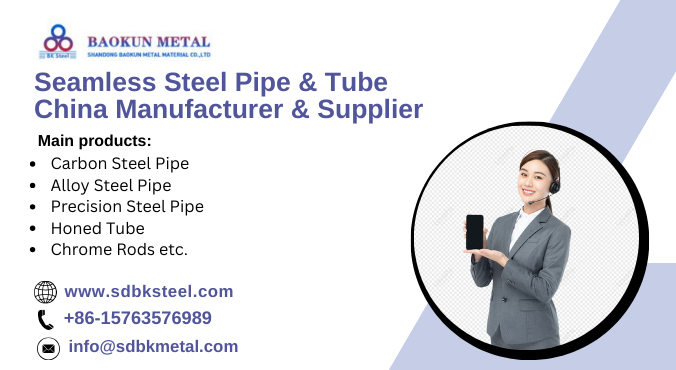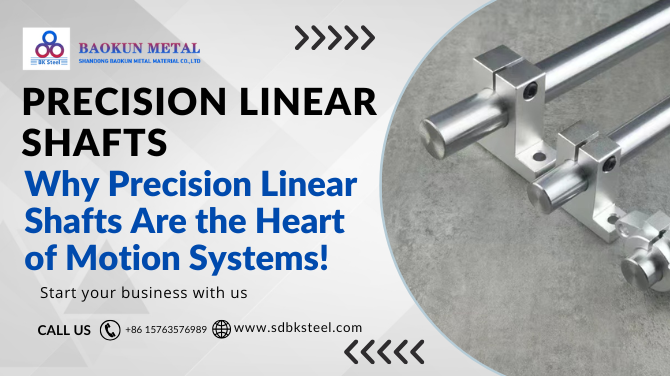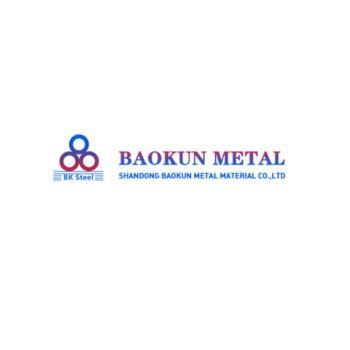In the dynamic world of industrial automation and motion control, precision isn’t just a perk—it’s a prerequisite. Every micron counts, every movement must be intentional, and every component has to perform flawlessly under pressure. This is where Precision Linear Shafts come into play. Designed with exacting standards and manufactured with high-grade materials, these shafts are truly the unsung heroes of modern motion systems.
What Are Motion Systems?
Motion systems are mechanical frameworks that enable controlled movement in machines or devices. Think of them as the skeleton and muscles of automation—guiding, positioning, and propelling components with precision. Whether it's a 3D printer, CNC machine, or surgical robot, motion systems make these technologies work efficiently.
The Role of Precision in Mechanical Motion
Precision ensures repeatability, reduces wear, and enhances the reliability of every movement. In high-performance machinery, even a slight deviation can lead to costly errors or equipment failure. That’s why the demand for components like precision linear shafts has skyrocketed—they keep things moving with surgical accuracy.
Understanding Precision Linear Shafts
What Are Precision Linear Shafts?
Precision linear shafts are cylindrical rods used to support and guide linear motion bearings. Their job? Provide a smooth, hardened surface on which moving parts can glide with minimal resistance and maximum accuracy.
Key Components and Materials Used
- Stainless Steel vs. Chrome-Plated Steel
High-quality linear shafts are often made from stainless steel for corrosion resistance, or chrome-plated steel for superior hardness and surface finish.
- Surface Finish and Hardness
A key differentiator is their surface treatment. Linear shafts undergo precision grinding and polishing to achieve ultra-smooth finishes—down to microns—ensuring seamless motion.
How They Differ From Standard Shafts?
Unlike general-purpose shafts, precision linear shafts undergo strict tolerance checks and heat treatment processes. This makes them more durable, more accurate, and less prone to bending under load.
Why Precision Matters in Motion Systems?
- Reduced Friction for Smooth Performance
With tighter tolerances and smoother finishes, precision shafts drastically cut down friction, improving energy efficiency and speed.
- Higher Accuracy in Repetitive Movement
For automated tasks that repeat thousands of times daily, these shafts ensure consistency. No drifting. No misalignments. Just perfection.
- Improved Equipment Lifespan
Less friction means less wear. That translates to longer-lasting machines, fewer replacements, and happier engineers.
Applications of Precision Linear Shafts
- CNC Machines
In CNC machining, precision is non-negotiable. These shafts ensure the cutting tools move with pinpoint accuracy.
- 3D Printers
From hobbyist setups to industrial 3D printers, linear shafts help print layer upon layer with seamless fluidity.
- Robotics
Robots rely on linear motion for arms, joints, and tracks. Precision shafts give them the stability and control they need.
- Medical Equipment
In devices like CT scanners or automated surgical tools, any deviation could jeopardize safety. Precision linear shafts eliminate that risk.
- Automation & Industrial Machinery
Assembly lines, conveyor systems, and packaging machines all rely on linear shafts to stay in sync and on time.
Shandong Baokun Metal Material Co. Ltd: Leading the Way
- Company Overview
Based in the heart of China’s manufacturing hub, Shandong Baokun Metal Material Co. Ltd has carved out a name as a trusted provider of high-performance metal components.
- Commitment to Quality and Precision
With cutting-edge manufacturing equipment and a dedicated R&D team, Baokun ensures every precision linear shaft exceeds industry standards.
- Industries Served
From aerospace to electronics, Baokun’s shafts power systems across a diverse spectrum of global industries.
Advantages of Using Precision Linear Shafts
- High Load-Bearing Capacity
Engineered to withstand high axial and radial loads without deformation.
- Corrosion Resistance
Surface-treated to endure harsh environments—whether it's heat, chemicals, or humidity.
- Enhanced Linear Accuracy
Maintain straightness even over long spans, essential for long-travel applications.
- Low Maintenance Needs
Thanks to durable materials and finishes, you won’t need to constantly tweak or replace them.
Factors to Consider
- Shaft Diameter
Thicker shafts can support heavier loads, while thinner ones are ideal for compact designs.
- Material Composition
Choose based on application—stainless for corrosion-prone areas, chrome for wear-heavy tasks.
- Tolerance Ratings
Look for tighter tolerances (±0.002 mm) if you need ultra-high precision.
- Custom vs. Standard Options
Baokun offers both, ensuring clients get exactly what they need, no compromises.
Installation Tips for Maximum Efficiency
- Alignment Techniques
Always ensure parallel alignment between shafts and bearings to prevent jamming or wear.
- Mounting Considerations
Use proper mounting brackets and supports to reduce vibration and ensure rigidity.
- Common Mistakes to Avoid
Don’t overtighten mounts, skip lubrication, or ignore manufacturer tolerances—it’ll cost you in performance.
Maintenance and Care Guidelines
- Lubrication Best Practices
Use grease or oil-based lubricants periodically, depending on usage conditions.
- Inspection and Wear Monitoring
Check for scratches, pitting, or any play in bearings—a sign it’s time to replace.
- Replacement Recommendations
When shafts lose their polish or dimensional accuracy, don’t hesitate—swap them out for optimal performance.
Trends in Linear Shaft Manufacturing
- Technological Advancements
From laser hardening to nanometer surface finishes, innovation never sleeps in this field.
- Eco-Friendly Materials and Practices
Sustainable sourcing, energy-efficient processing, and recyclable packaging are becoming industry standards.
- Automation in Shaft Production
Robotics and AI-driven quality checks are reducing human error and speeding up production timelines.
Customer Success Stories
- Industrial Automation Firm
One factory reported a 20% increase in throughput after switching to Baokun’s precision linear shafts—thanks to smoother motion and fewer breakdowns.
- High-Precision Robotics Startup
A robotics firm cut maintenance costs in half, simply by upgrading to higher-grade shafts from Baokun.
When it comes to building systems that move with purpose, precision linear shafts are absolutely vital. They don’t just support motion—they define it. From CNC machines to surgical robots, these slender rods carry the weight of accuracy on their shoulders. And with Shandong Baokun Metal Material Co. Ltd leading the charge, you’re guaranteed unmatched quality, performance, and reliability.
So, whether you’re an engineer, buyer, or machinery designer—investing in precision linear shafts is a decision you’ll never regret. Because in motion systems, precision isn’t just a feature… it’s the foundation.

FAQs
1. What materials are best for precision linear shafts?
Stainless steel and chrome-plated steel are the most common due to their strength, hardness, and corrosion resistance.
2. How often should I lubricate linear shafts?
It depends on usage, but generally every 100–200 operating hours is ideal. For high-load applications, more frequent lubrication may be needed.
3. Can I use standard shafts in place of precision shafts?
Technically yes, but you’ll compromise accuracy, lifespan, and performance—especially in high-precision setups.
4. Are custom shaft sizes available from Baokun?
Yes! Shandong Baokun offers tailored solutions for different lengths, diameters, materials, and finishes.
5. What are typical tolerance levels for precision linear shafts?
Top-grade shafts maintain tolerances as tight as ±0.002 mm, ensuring ultra-precise linear motion.



